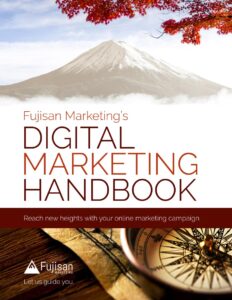MozCon wrapped up its 2024 edition earlier this summer, which included some thoughts on the evolution of SEO and AI. Before you think, “Oh, I bet the takeaways are to hop on that bandwagon,” you might want to slow down that reflex.
A lot of the findings were in line with what many of us have intuitively experienced as individuals — when it comes to making content that provides value instead of clogging up the search engine ecosystem, AI and low-quality output (even when human-powered) aren’t particularly beneficial and can even be damaging to those churning it out.
Here are some more of those takeaways, as well as our own analysis:
The direction of SEO, the impacts of AI, and internet users’ evolving priorities

Effectively, AI has amplified the impact of Google’s algorithm prioritizing content quantity above everything else, making it easier than ever to take advantage of the bias towards mass-produced content.
This has always been an unfortunate aspect to organic search, and now it has sped up significantly. For a while now, many brands have attempted to cut corners to keep up with the SEO arms race, and in the process, the quality of what you find on Google SERPs has tanked. For many search terms that have even a minuscule amount of complexity or specificity, Google’s results can be practically useless.
Google’s algorithm aims to display the best content at the top of search results. However, the abundance of low-quality content over the last few years has made it difficult for users to find high-quality material. In response, Google released one of their largest ever updates in March 2024. This update aims to tackle this issue by tweaking the algorithm to better spot and prioritize high-quality content.
Using advanced AI, its goal is to gain a better understanding of what users are looking for and which content is most relevant. Its ultimate goal is to reduce the presence of low-quality content in search results, making it easier for users to find the valuable information they need. This update has majorly impacted content mills whose goals are to produce as much content as possible. Many of these organizations have reported that user trends are experiencing a sharp drop-off in both overall search traffic and key metrics for organic and sponsored content.
To complicate matters even further, Gartner is predicting an approximate 25% decrease in search traffic volume by 2026; Pilot Digital’s Ben Hicks discusses here how there could be a decrease by as much as 50-90% in click-through rate in the months and years to come.
At the same time, the intrusiveness of data collection and certain targeting practices has people taking extra steps to protect their privacy.
According to a report conducted by Censuswide, around 52% of Americans — and 66% of advertisers — are using ad blockers. Privacy legislation like GDPR further emphasizes these priorities. Furthermore, GA4 and CRM softwares don’t communicate seamlessly, so any data you’re getting isn’t necessarily complete.
Which all comes back to the double-edged sword for individual brands — the SEO content quantity obsession. Many are tempted to use AI for the obvious reason: it is an extremely low-effort way to make… something. However, in the content game, it will not make you something good. Low-quality content of human origin is increasingly reviled by internet users — and in an environment not completely overwhelmed with it, it would likely be penalized by Google’s algorithm.
Emphasizing quality to engage users and build your authority

So, in an environment saturated with, if we’re being honest, a lot of crap, emphasizing higher-quality output makes you stand out. Sure, it requires more effort and time, but the rewards — especially from a sustainable, long-term perspective — more than reflect that when done well.
In the end, modern internet users are familiar enough with the landscape to quickly sniff out when something’s low-quality. That means low engagement and a high bounce rate, which affects both the overall human element and how Google ranks you:
- People will not only spend little time on your site, but also aren’t likely to return.
- The poor engagement metrics and quick abandonment of your pages will be penalized by Google.
In other words, poor-quality output does more damage than good.
Furthermore, low-quality content begets low-quality traffic. Sure, you want a lot of volume, but at the end of the day, if it’s a high volume of people who have zero interest in what you’re offering, a slightly lower volume of people with a lot of interest is far more valuable. And, over time, putting more effort into higher quality will increase the traffic volume to be higher than if you had focused on quantity over quality, all while increasing the “quality” of the users making up that volume.
All the while, Google is increasingly favoring well-established brands in search rankings. This kind of sucks if you’re not already established, but you certainly won’t get out of that rut by quickly churning out material that people realize isn’t helpful. Instead, smaller brands need to focus on what unique bits of information their SMEs (Subject Matter Experts) can provide, offering content that stands out for its originality and value.
With all that said, what should you be doing to make sure your content is “high quality”? MozCon gave us a couple key takeaways that we think make a lot of sense:
- Developing that’s original and expert — that goes in-depth and/or only you have done — builds trust with users and, over time, builds your reputation as an authority. You’ve heard us talk about EEAT and YMYL before, and those rules still apply.
- What’s even more helpful is if you actively engage with users to form that connection and help them out. Forums, webinars, and social media are all good starting points here. When you’ve established to the actual humans that make up your site’s traffic that you’re an authority, they’ll return often, favor you, and establish you as something valuable — which will, in turn, change the way Google sees you.
- AI cannot have personal anecdotes, unique perspectives, or expert analysis — only you can. While some brands will fall into the AI arms race trap, more high-quality, expert, informative, engaging content and human interactions will stand out. Remember that.
There’s no one right way to make good content. But a focus on being engaging, helpful, and expert-driven is a pretty good place to start.
More on preparing for the future of SEO (in the present!)

As written content quality declines with the proliferation of AI, Google is becoming less reliable when it comes to finding good information, which is turning users away. Businesses should diversify their strategies, not solely relying on blogs, but instead leveraging social media, podcasts, YouTube, and other platforms to reach more people and avoid depending too much on Google, which isn’t as effective as it used to be.
With Google getting worse due to low-quality content and AI, it’s crucial for businesses to directly engage with customers who are interested in their products or services. Opt-in methods like mailing lists are great because people have agreed to hear from you. Social media followers are important too, but it’s risky to rely too heavily on any one platform because algorithms change quickly.
Another avenue is first-party data. It provides better insights than third-party tracking, so use it wisely to reach your best customers. Traditional metrics like clicks and impressions are less useful now because Google isn’t guiding users effectively, leading to more irrelevant traffic. Focusing on these metrics might waste time and annoy users.
But don’t ditch SEO completely—use it alongside other channels to maximize your reach and effectiveness.




